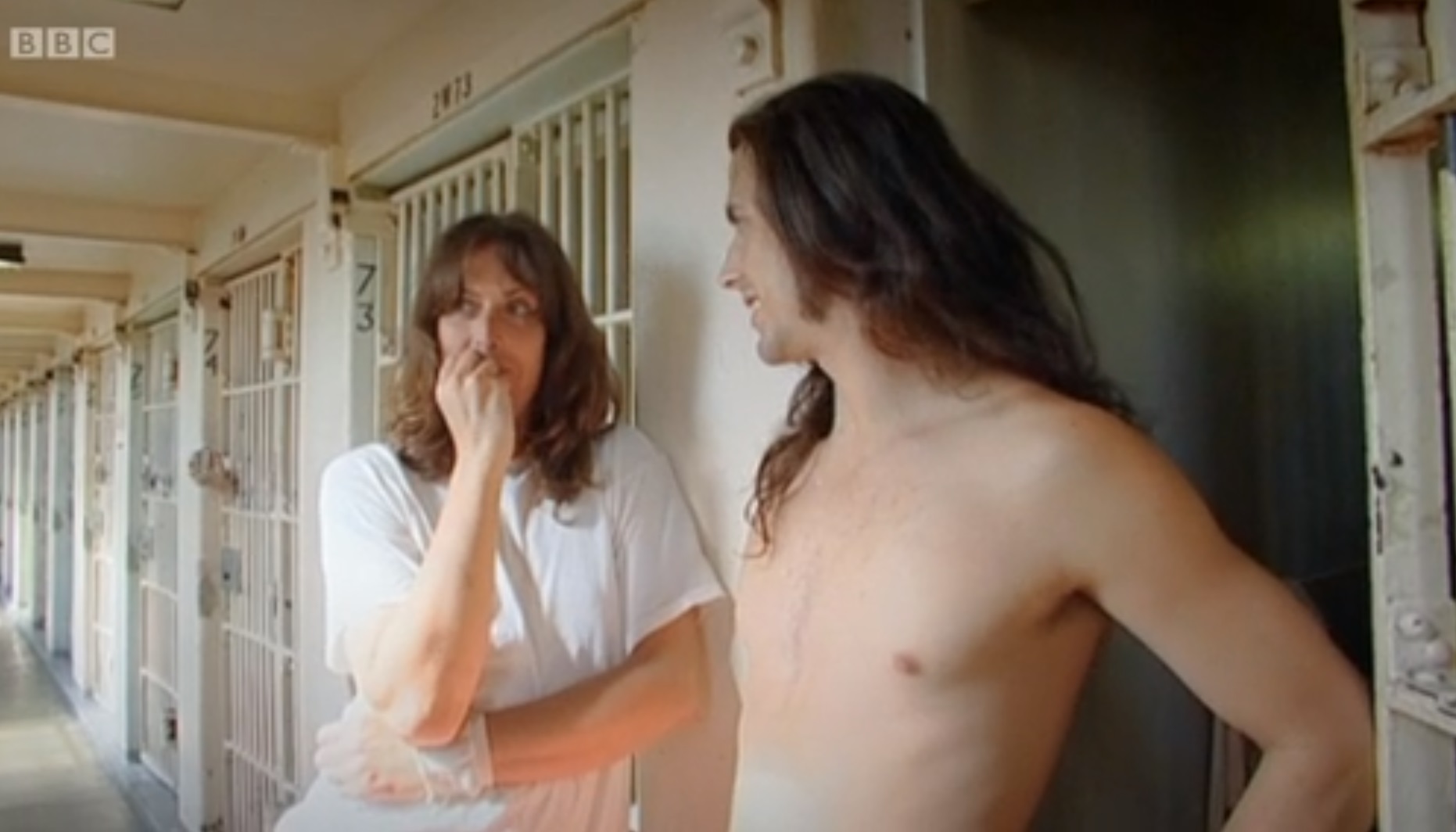Louis Theroux pays moving tribute to trans woman who died after starring in his prison documentary

The filmmaker had interviewed Deborah Lee Worledge in his 2007 documentary Behind Bars. (BBC)
Louis Theroux has spoken about a trans woman who died to a drug overdose a year after she was interviewed for his prison documentary.
The filmmaker had interviewed Deborah Lee Worledge in his 2007 documentary Behind Bars, which explored life in the US prison system.
At the time Deborah, who had a decades-long record of minor criminal offences, was serving a three-month sentence for robbery at San Quentin, a men’s prison in California.
When Theroux first interviewed the inmate, she was revealed to be in a loving and compassionate relationship with her cellmate, Robert.
Louis Theroux shares tragic update on trans woman featured in prison documentary.
Revisiting the documentary as part of his new series Life on the Edge, Theroux reflected: “Shortly after the interview, Deborah was released.
“She to me represented something about San Quentin, which was that very often things weren’t quite as you would expect. Nothing was quire as simple as you might imagine it would be.
“You expect brutality in prison, and violence and antagonism, so what becomes surprising is when you see something else. It’s not simply chaos, mayhem, negativity.
“If you become habituated to a certain way of living, that becomes more normal, or at least more known, than what you have on the outside.”

Louis Theroux had interviewed Deborah Lee Worledge and her then-cellmate Robert in his 2007 documentary Behind Bars
He added: “The following year, after we filmed, Deborah was back inside, and then released.
“She died of a drug overdose on September 4, 2008 two days later. She is missed by many.”
Theroux continued: “She had a romantic notion of being an outlaw. She was the one who said to me: ‘It’s like in the movies. there’s cops and there’s robbers, and we’re the robbers.’
“She seemed to have seen the streets as a more accepting place than, as it were, mainstream society. There’s a kind of self-respect in the aspect of street code.
“It might seem self-destructive, but in other ways it’s the best they can do in the situation they’re in.”
Deborah Lee Worledge: ‘Today’s a different day’.
The new documentary features a short clip of Deborah speaking to photographer Robert Gumpert in 2008, shortly before her death.
In the full clip, she expresses her hope that as trans people become more accepted in society, they would have a route to a better life.
She says: “Years ago back in the 80s, when t****ies were growing up and coming of age, there was no place for us in society and we were kind of put out on the fringes of society.
“We were allowed by society to be the hookers late at night, do little petty crimes, be little petty drug dealers, but we were never allowed to be in somebody’s business, to represent their business standing at the counter.
“The real safe place for us was out there on the streets, in the little underworld or whatever you want to call it, being petty criminals, coming in and out of jails and stuff.
“I’ve done a nine year term, and a 13 year term back to back in prison behind. Growing up out there on the street.
“Today’s a different day, though, because now transsexuals are in the non-profits, and they’re being allowed to become functioning members of the community, things are becoming much more accepted.
“We’re not all Jerry Springer. And I feel pretty confident about the upward movement of my community, and proud to be a part of it.”
Louis Theroux has previously said that he regrets parts of the original 2007 documentary, which referred to Deborah by her birth name and used male pronouns for her during voice-over segments.
He explained to UniLad that since the documentary series was filmed, “it feels like the world’s moved on and all cultural norms have changed”.
He said: “It feels like maybe there’s moments that don’t feel quite right, or feel like they would be phrased differently now.
“There’s moments where because of the nature of sensitivities now, and how much more educated we are, the conversation would take place in a different way.”
The long-serving BBC filmmaker has frequently touched on LGBT+ issues in his work, from documenting the hate-fuelled homophobia of the Westboro Baptist Church to exploring some of the issues facing transgender kids.

